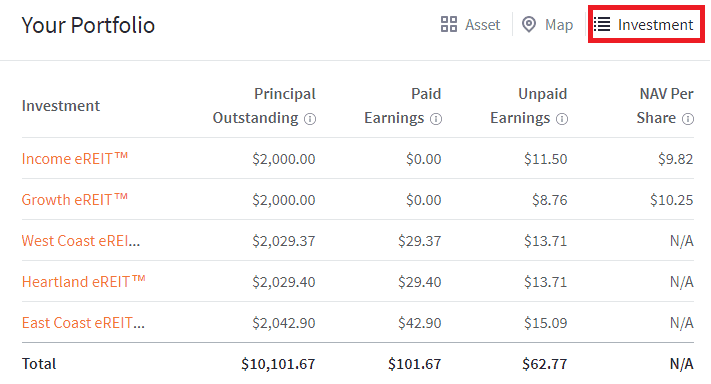
What makes long-term investors different from short-term ones? In exchange for long-term growth, long term investors can accept short-term pain. They track dividends, not stock prices, and invest in companies likely to double or triple in the next few generations. This strategy is the best way to ensure long-term success. It takes less time, and is more cost-effective. A quarterly checkup is often sufficient. This will allow your money to grow while you're not paying attention.
Long-term investment is about attitude, not timing
Long-term investors must have the mentality to invest for the long term. Your investment process, information, and philosophy will reflect that you're focused on the long-term. Long-term investing involves several different facets, including a commitment to building something of value, a long-term perspective, and the desire to create a better world. To be successful in investing for the long-term, you must adopt the attitude that "the right way" is better than the wrong way."

A long-term investor will carefully choose investments, holding them throughout market ups and downs. An investor who is long-term will be more focused on long-term results than short-term performance. This is because they believe that their investments will eventually pay them back in the long run. This strategy has been successful in the past. However, it does not guarantee future success. Long-term investors should always be aware and prepared for the possible risks.
They will accept short-term pain in order to gain long-term satisfaction.
Long-term investors are known for their willingness to take short-term pain in return for long-term gains. These attitudes are common in individuals and organizations. They are not the result a particular investment philosophy or process. Instead, they reflect an individual's attitudes toward risk and reward. There are many different aspects to long-term investing, and there are many paths to success.
They track dividends instead of stock prices
As a long-term investor, you should focus on stocks with a growing dividend. It is easy to go wrong if your sole focus is on the dividend payout or you choose unreliable companies. Dividend growth investing focuses on the resilience of a company rather than its dividend yield alone. More than 120 companies stopped paying dividends in 2008 and 90 more had them suspended by March 2020. Fortunately, dividend growth stocks continue to be a good option.

They invest heavily in companies that can double, triple, or even exceed their earnings over many decades.
To double your money, it takes 3.2 more years. You will need another 3.2 year to double the amount of money that is worth $2,000 right now. You will see a two-to threefold increase in your wealth over the next 10 years if it is $200,000 today. The chances of long-term investors investing in companies that double, triple, and even thrice increase their investment over many decades are high.
FAQ
What's the difference among marketable and unmarketable securities, exactly?
The main differences are that non-marketable securities have less liquidity, lower trading volumes, and higher transaction costs. Marketable securities, however, can be traded on an exchange and offer greater liquidity and trading volume. They also offer better price discovery mechanisms as they trade at all times. There are exceptions to this rule. Some mutual funds, for example, are restricted to institutional investors only and cannot trade on the public markets.
Non-marketable securities tend to be riskier than marketable ones. They generally have lower yields, and require greater initial capital deposits. Marketable securities tend to be safer and easier than non-marketable securities.
For example, a bond issued in large numbers is more likely to be repaid than a bond issued in small quantities. This is because the former may have a strong balance sheet, while the latter might not.
Because they are able to earn greater portfolio returns, investment firms prefer to hold marketable security.
Who can trade on the stock market?
The answer is everyone. All people are not equal in this universe. Some people have better skills or knowledge than others. They should be rewarded.
There are many factors that determine whether someone succeeds, or fails, in trading stocks. If you don’t know the basics of financial reporting, you will not be able to make decisions based on them.
These reports are not for you unless you know how to interpret them. It is important to understand the meaning of each number. Also, you need to understand the meaning of each number.
You'll see patterns and trends in your data if you do this. This will allow you to decide when to sell or buy shares.
This could lead to you becoming wealthy if you're fortunate enough.
How does the stockmarket work?
A share of stock is a purchase of ownership rights. A shareholder has certain rights over the company. He/she may vote on major policies or resolutions. He/she can seek compensation for the damages caused by company. He/she can also sue the firm for breach of contract.
A company cannot issue any more shares than its total assets, minus liabilities. This is called "capital adequacy."
Companies with high capital adequacy rates are considered safe. Companies with low ratios of capital adequacy are more risky.
Why is it important to have marketable securities?
An investment company's main goal is to generate income through investments. It does this through investing its assets in various financial instruments such bonds, stocks, and other securities. These securities have attractive characteristics that investors will find appealing. These securities may be considered safe as they are backed fully by the faith and credit of their issuer. They pay dividends, interest or both and offer growth potential and/or tax advantages.
The most important characteristic of any security is whether it is considered to be "marketable." This is the ease at which the security can traded on the stock trade. You cannot buy and sell securities that aren't marketable freely. Instead, you must have them purchased through a broker who charges a commission.
Marketable securities are government and corporate bonds, preferred stock, common stocks and convertible debentures.
Investment companies invest in these securities because they believe they will generate higher profits than if they invested in more risky securities like equities (shares).
How do I invest in the stock market?
You can buy or sell securities through brokers. Brokers buy and sell securities for you. You pay brokerage commissions when you trade securities.
Banks typically charge higher fees for brokers. Banks offer better rates than brokers because they don’t make any money from selling securities.
A bank account or broker is required to open an account if you are interested in investing in stocks.
A broker will inform you of the cost to purchase or sell securities. This fee will be calculated based on the transaction size.
Ask your broker:
-
the minimum amount that you must deposit to start trading
-
What additional fees might apply if your position is closed before expiration?
-
What happens if your loss exceeds $5,000 in one day?
-
How long can you hold positions while not paying taxes?
-
How you can borrow against a portfolio
-
Whether you are able to transfer funds between accounts
-
What time it takes to settle transactions
-
The best way buy or sell securities
-
How to avoid fraud
-
how to get help if you need it
-
How you can stop trading at anytime
-
whether you have to report trades to the government
-
Reports that you must file with the SEC
-
Do you have to keep records about your transactions?
-
Whether you are required by the SEC to register
-
What is registration?
-
How does it affect me?
-
Who is required to register?
-
What are the requirements to register?
Statistics
- "If all of your money's in one stock, you could potentially lose 50% of it overnight," Moore says. (nerdwallet.com)
- For instance, an individual or entity that owns 100,000 shares of a company with one million outstanding shares would have a 10% ownership stake. (investopedia.com)
- Ratchet down that 10% if you don't yet have a healthy emergency fund and 10% to 15% of your income funneled into a retirement savings account. (nerdwallet.com)
- US resident who opens a new IBKR Pro individual or joint account receives a 0.25% rate reduction on margin loans. (nerdwallet.com)
External Links
How To
How to Trade in Stock Market
Stock trading is a process of buying and selling stocks, bonds, commodities, currencies, derivatives, etc. Trading is a French word that means "buys and sells". Traders trade securities to make money. They do this by buying and selling them. It is one of the oldest forms of financial investment.
There are many ways you can invest in the stock exchange. There are three types of investing: active (passive), and hybrid (active). Passive investors only watch their investments grow. Actively traded investors seek out winning companies and make money from them. Hybrid investors take a mix of both these approaches.
Passive investing is done through index funds that track broad indices like the S&P 500 or Dow Jones Industrial Average, etc. This type of investing is very popular as it allows you the opportunity to reap the benefits and not have to worry about the risks. All you have to do is relax and let your investments take care of themselves.
Active investing involves picking specific companies and analyzing their performance. An active investor will examine things like earnings growth and return on equity. Then they decide whether to purchase shares in the company or not. If they feel that the company is undervalued, they will buy shares and hope that the price goes up. However, if they feel that the company is too valuable, they will wait for it to drop before they buy stock.
Hybrid investment combines elements of active and passive investing. You might choose a fund that tracks multiple stocks but also wish to pick several companies. In this instance, you might put part of your portfolio in passively managed funds and part in active managed funds.